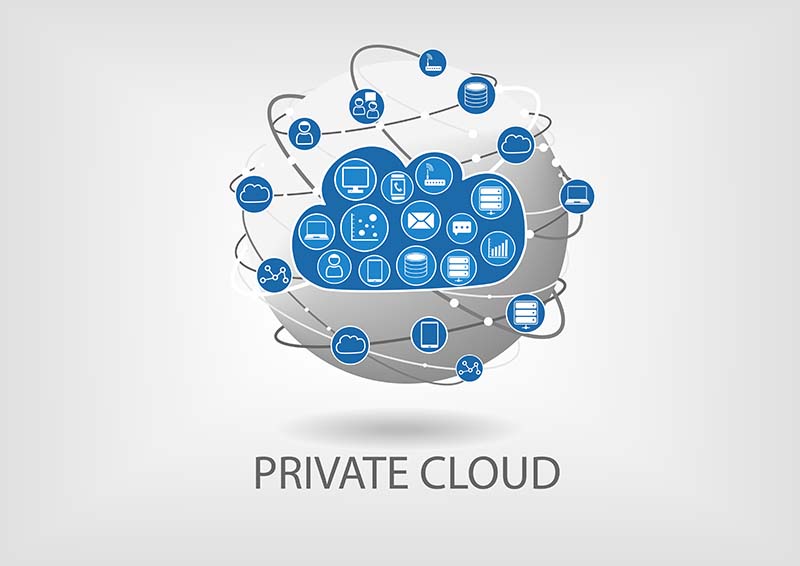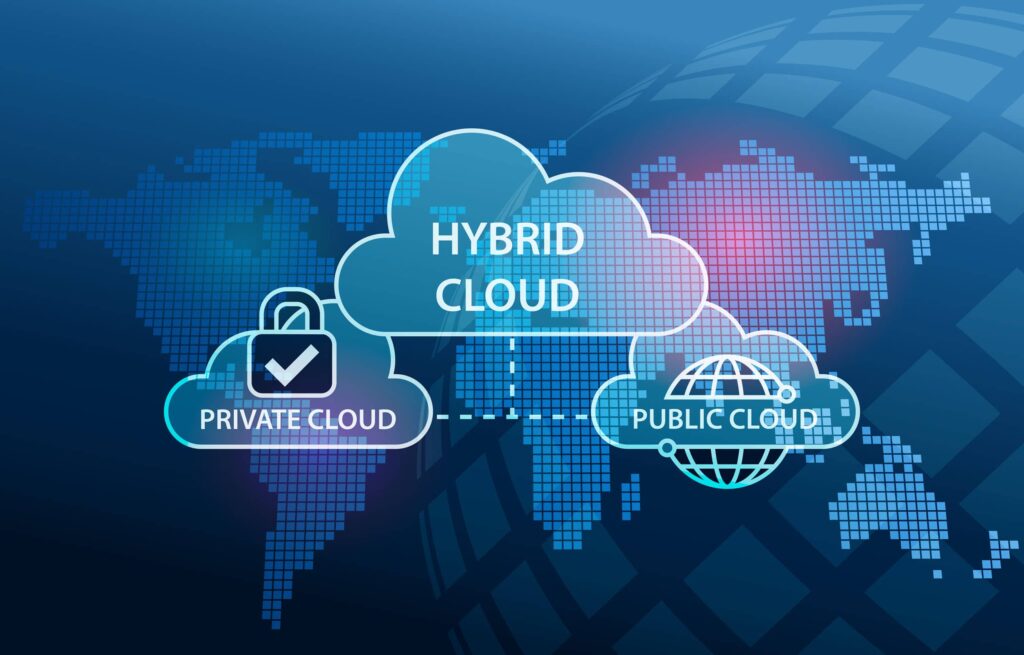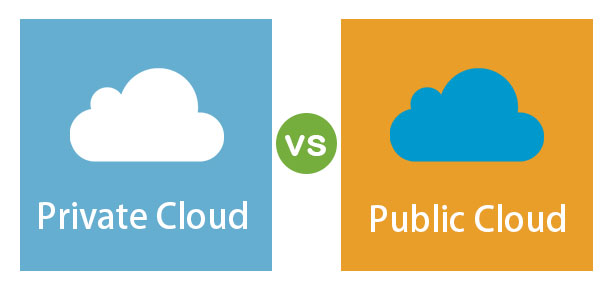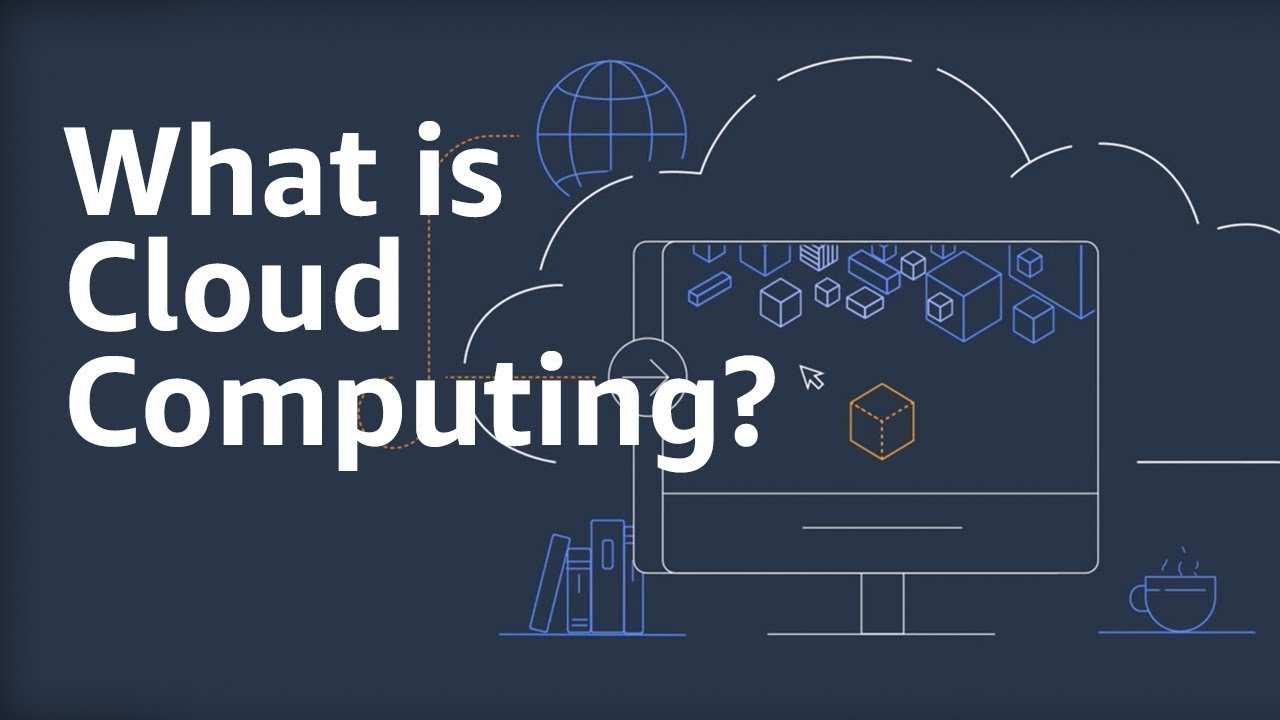Private Cloud Vs Public Cloud : Differences, Security, Cost and More
Private Cloud Vs Public Cloud – At the moment expertise has developed quickly, considered one of which is information storage. Corporations or organizations definitely have various information and want a safe and huge information storage space. So, there’s an innovation for cloud-based information storage or generally referred to as cloud computing. As time goes by, cloud computing is rising by presentingPrivate Cloud andPublic Cloud.
Certainly you might be no stranger to the term Private Cloud and Public Cloud. As , the 2 forms of cloud, though they’re each cloud-based information storage, in fact, these two issues have variations that swimsuit the wants of an organization or group, so you possibly can select which cloud computing service to make use of. Within the following, we’ll present a proof of the 2 cloud computing companies.
What is Private Cloud?

Private Cloud is a cloud computing mannequin for information storage that may be a single tenant. This cloud is a sort of cloud computing service that has benefits just like a Public Cloud which offers the identical benefits as a Public Cloud, together with when it comes to scalability, elevated useful resource utilization, and self-service capabilities. This Private Cloud service is often utilized by one group solely and ensures that the service is totally remoted from different firms or organizations. This cloud can be not unusual to be personalized based on the wants of an organization or group.
What is Public Cloud?

Public Cloud results in the most well-liked sort of cloud computing during which IT companies are delivered over the web. As the most well-liked sort of cloud computing service, cloud assets comparable to servers and storage are owned and operated in a digital house that’s safe and assured by the cloud service supplier, this can be a third occasion. Public cloud affords many decisions when it comes to cloud-based computing options and assets to satisfy the rising wants of organizations or firms.
Benefits of Private Cloud and Public Cloud
Indonesian Cloud offers servicesPrivate Cloud andPublic Cloud that may meet the wants of your organization or group. Then what are the benefits of utilizing Private Cloud and Public Cloud companies that you should know? Let us take a look at the next rationalization.
Benefits of Using Private Cloud
- Devoted Cloud Infrastructure
Using Private Cloud has its personal infrastructure that isn’t built-in with different cloud infrastructure. So that you need not fear in regards to the privateness and safety of your organization or group’s information assured, since you will not share it like within the Public Cloud.
- Supported Numerous Cloud Know-how
Our Private Cloud is supported by trusted and dependable cloud expertise platforms of their fields, particularly VMware, Nutanix, Virtuozzo, and Redhat Openstack.
- Dependable Safety
A dependable degree of safety to guard your private information in order that it’s at all times protected and safe. Will defend your information from hacking.
- Scalable Capasity
Capability might be scaled based on your corporation wants so you do not have to spend excessively in your information storage wants.
- Monitor Service
There’s a monitoring service in order that customers can monitor information saved on our non-public cloud service.
Benefits of Utilizing Public Cloud
- Reasonably priced capital
The funding required could be very minimal to keep up the IT infrastructure within the public cloud.
- Technical flexibility
Has excessive scalability and adaptability to satisfy the calls for of workloads which are typically sudden. Cloud capability and assets are quickly increasing because of person demand and excessive visitors. Public cloud customers can even get excessive availability as a result of the seller has quite a few information facilities in an space.
- You may give attention to enterprise
After all you need not fear in regards to the complexity of IT issues, these issues might be minimized as a result of the cloud supplier is accountable for infrastructure administration, so you possibly can give attention to operating your corporation.
- Reasonably priced Value
Versatile pricing might be adjusted based on the wants of your organization or group based mostly on totally different Service Degree Agreements (SLA) affords.
What is Cloud Computing: Definition, Types, and Functions
Security and Privacy

In the case of safety and privateness, non-public clouds have the higher hand. For the reason that assets are devoted to a single group, there’s a increased degree of management and customization accessible. Organizations can implement their very own safety measures and have full visibility and management over their information. Public clouds, alternatively, are shared amongst a number of organizations, which may elevate issues about information privateness and safety breaches.
Cost Concerns
When it comes to price, public clouds are typically cheaper than non-public clouds. Public cloud suppliers provide a pay-as-you-go pricing mannequin, permitting organizations to solely pay for the assets they use. This eliminates the necessity for upfront investments in {hardware} and infrastructure. Private clouds, alternatively, require important upfront prices for {hardware}, software program, and upkeep.
Scalability and Flexibility
Public clouds provide unparalleled scalability and adaptability. Organizations can simply scale their assets up or down based mostly on demand, with none limitations. Public cloud suppliers have huge quantities of assets accessible, guaranteeing that organizations can meet their rising wants. Private clouds, alternatively, have restricted scalability and adaptability because the assets are devoted to a single group.
Customization and Management
Private clouds present the next degree of customization and management. Organizations have the liberty to tailor the cloud infrastructure to their particular wants and necessities. They will select the {hardware}, software program, and safety measures that finest swimsuit their enterprise. Public clouds, alternatively, have restricted customization choices because the infrastructure is shared amongst a number of organizations.
Efficiency and Reliability
In the case of efficiency and reliability, non-public clouds have the benefit. For the reason that assets are devoted to a single group, there’s much less danger of efficiency degradation because of useful resource sharing. Private clouds additionally provide higher reliability since organizations have full management over the infrastructure and might implement redundancy measures. Public clouds, alternatively, can expertise efficiency points throughout peak utilization occasions and could also be extra liable to outages.
Compliance and Regulatory Requirements
Compliance and regulatory necessities play an important position in sure industries, comparable to healthcare and finance. Private clouds provide higher compliance choices since organizations have full management over the infrastructure and might implement the required safety measures to satisfy regulatory requirements. Public clouds, alternatively, might have limitations when it comes to compliance because of the shared nature of the infrastructure.
Data Sovereignty
Knowledge sovereignty refers back to the authorized and regulatory necessities that govern the place information might be saved and processed. Private clouds present organizations with the flexibility to maintain their information inside their very own jurisdiction, guaranteeing compliance with information sovereignty laws. Public clouds, alternatively, might retailer information in a number of areas, which may elevate issues about information sovereignty and jurisdictional points.
Useful resource Allocation
In a non-public cloud, organizations have full management over useful resource allocation. They will allocate assets based mostly on their particular wants and necessities, guaranteeing optimum efficiency and effectivity. Public clouds, alternatively, have shared assets, which may result in useful resource competition and efficiency points throughout peak utilization occasions.
What is a Cloud Engineer? Definition, Types, Skills Needed
Upkeep and Assist
Private clouds require organizations to deal with the upkeep and assist of the infrastructure themselves or depend on a third-party supplier. This will require further assets and experience. Public clouds, alternatively, are managed and maintained by the cloud supplier, relieving organizations of the burden of infrastructure upkeep and assist.
Hybrid Cloud Options

In some circumstances, organizations might go for a hybrid cloud resolution, which mixes components of each non-public and public clouds. This enables organizations to leverage the advantages of each fashions, such because the safety and management of a non-public cloud and the scalability and cost-efficiency of a public cloud. Hybrid cloud options might be tailor-made to satisfy particular enterprise wants and supply a versatile and scalable infrastructure.
Selecting the Proper Cloud Mannequin
Choosing the proper cloud mannequin is determined by numerous components, together with safety necessities, compliance laws, funds constraints, scalability wants, and useful resource allocation preferences. Organizations ought to fastidiously consider their particular wants and necessities earlier than making a call. It’s also advisable to seek the advice of with cloud consultants or search steerage from cloud service suppliers to make sure one of the best match for his or her enterprise.
Case Research
To additional illustrate the variations between non-public and public clouds, let’s check out two case research:
1. Firm A, a healthcare group, requires a excessive degree of safety and compliance because of the delicate nature of affected person information. They go for a non-public cloud resolution hosted on-premises, permitting them to have full management over the infrastructure and implement stringent safety measures to satisfy regulatory necessities.
2. Firm B, a startup within the e-commerce trade, has a restricted funds and requires scalability to deal with peak visitors throughout gross sales occasions. They select a public cloud resolution, leveraging the pay-as-you-go pricing mannequin and the flexibility to scale assets based mostly on demand.
Conclusion
In conclusion, non-public and public clouds provide totally different benefits and drawbacks, and the selection between the 2 is determined by the particular wants and necessities of a corporation. Private clouds present increased ranges of safety, customization, and management, however include increased upfront prices. Public clouds provide cost-efficiency, scalability, and adaptability, however might have limitations when it comes to safety and compliance. Hybrid cloud options can present a stability between the 2 fashions. It’s essential for organizations to fastidiously consider their wants and seek the advice of with consultants to make an knowledgeable choice.











Lovely website! I am loving it!! Will be back later to read some more. I am bookmarking your feeds also
daxktilogibigibi.1CsMP23rdC5I
daktilogibigibi.QdbfWOhgAWmQ
vurcazkircazpatliycaz.to7enxGaMdto